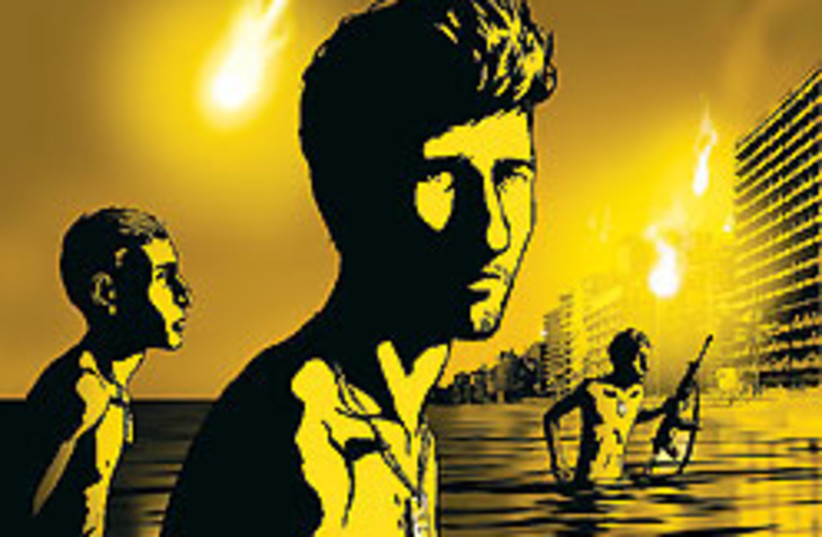Sometimes a movie is so powerful and you find yourself telling everyone you know to go and see it, and this is how I felt after I saw Jonas Poher Rasmussen’s Flee, an animated documentary about an Afghan refugee who eventually finds a home in Denmark, which opened in theaters throughout Israel this week.
It’s an unusual format that works beautifully to tell the story and it has received Oscar nominations in several categories: Best Animated Feature, Best Documentary and Best Foreign Language Film. It is the first film to be nominated in these three categories and this gives a sense of what a strong film it is. It was clearly influenced by the groundbreaking film in this new genre, Ari Folman’s 2008 Waltz with Bashir.
This film is a reminder that wars that lead to refugees fleeing happen all the time and in all parts of the world. It may make you ponder how the world responds differently when the conflict is in the Third World and the refugees are not European. The story is told in a clever way, with Amin Nawabi (a pseudonym), sitting with his filmmaker friend for an interview about his life. Amin has always told his friends that he lost all his family when he fled Afghanistan, that he is an orphan, but the truth is more complex and the circumstances of his flight have led him to keep a devastating secret all these years.
Amin was a boy who always felt that he was gay, but when he was a child in Kabul, his family nurtured him and his identity was not an issue. When the Taliban took over in Afghanistan, his father was taken away and eventually his family fled the country. A relative, who was already in Europe, sent home all the money he earned but it was not enough to get all of them out.
His sisters went first and found refuge in Europe. Amin, his mother and his brother managed to board a flight to Russia, but they were not able to get the necessary permits to make it to Western Europe and were stuck there in limbo for years.

Russia is currently in the headlines for the invasion of Ukraine and the portrait the movie paints of the Russian officials Amin and his family encountered could not be bleaker. Anytime they went out, they ran the risk of being picked up and forced to pay police to get away. He witnessed young migrant women being raped by the Russian police. They had barely enough money to get by and almost nothing to do.
If you ever wondered how people in these situations – and millions around the world who face similar circumstances – get through each day, this film explains it. The boys would go out on food runs when absolutely necessary and their mother tried to contact officials and arrange visas to other countries. The rest of the time, they watched Mexican soap operas, the only diversion available in their cramped apartment, where they were stuck for years.
The movie cuts back and forth between Amin in the present day, where he is a successful professional in the tech arena, he travels the world for business, is in a relationship with a man who wants to marry him, and his years as a child and a young boy in Kabul and Moscow. Being in a close relationship, even a loving, good one, makes him feel panicked and he is unsure about being able to commit. And then there is the secret he is afraid to reveal to anyone, which makes him feel isolated.
There is great suspense about what will happen to Amin and his family, but also tension over his present situation and how deep the scars go. The movie explores how someone can bounce back from the losses and dislocations Amin and his family suffer.
The animated documentary works well telling stories like this, where there are no photos or videos available in many parts. The artwork is evocative and as Amin speaks, he often sits in front of a colorful wall hanging that reflects his past life.
This is one of the most engaging and moving movies about the modern refugee experience that I have seen. In spite of the fact that it is about a very serious subject, it is not a dark or unpleasant film in any way. It’s as if the film is shining a flashlight into those corners of a room that you have been looking away from for years. When you really get to see Amin and his family, you understand that while the challenges they face may be more intense than what you have to deal with, they are people with whom you can empathize and care about deeply.
